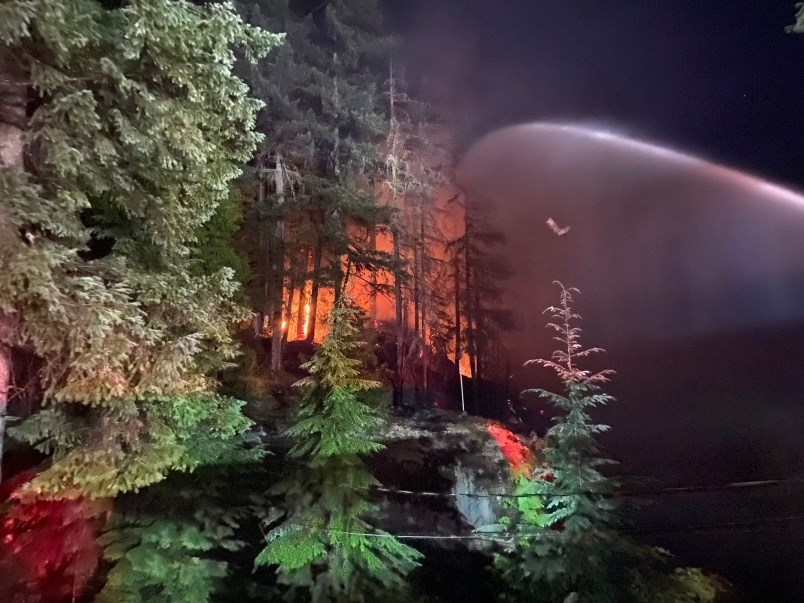Warm weather over the past weekend is drying out Tri-City forests, prompting cities to warn residents to take extra care to avoid a fire.
Much of the Lower Mainland is now rated as moderate for fire risk, according to the BC Wildfire Service, which updates its danger rating daily.
A moderate rating means forest fuels are drying and there is an increased risk of surface fires starting and fire wardens encourage residents to “carry out any forest activities with caution.”
And while this week’s heatwave has been declared over, another stretch of hot weather with temperatures up to 34 C is predicted for the upcoming weekend, Environment Canada says.
Meanwhile, in Port Coquitlam, fire and emergency services personnel are reminding residents of the fire risks associated with the summer weather.
Staff will be looking out for any fires, burning and smoking bylaw infractions as well as educating park and trail users about fire prevention.
Anyone found to be not following city bylaws will be given a warning or face fines.
Smoking is a leading cause of wildfires in B.C. The city’s smoking bylaw, adopted in 2017, prohibits smoking and vaping of any substance at parks, along trails and in public spaces.
In Port Coquitlam, propane or natural gas heaters, fire pits and decorative fire tables are permitted outdoors on private property when used in accordance to Fire and Emergency Services Bylaw No. 3880. They are not permitted in Port Coquitlam parks and natural areas.
For more about PoCo fire safety, visit here:
In Port Moody, fire prevention officials are taking inventory of the trees and soil conditions to determine just how much fuel is out there and identify areas of particular threat from wildfires.
For more about PoMo fire safety, visit here:
In Coquitlam, firefighters have been conducting interface training to protect residents living on the edge of forests. In May, a drill was held to test specialized wildfire suppression and structural protection gear, aircraft bucketing and a real-time mapping ARCGIS Collector App for the simulated evacuation.
For more about Coquitlam fire safety, visit here:
TIPS FOR PREVENTING FOREST FIRES IN PORT MOODY, COQUITLAM AND PORT COQUITLAM
What can you do to prevent fires?
- Do not have any open fires or conduct outdoor burning
- Relocate flammable debris or firewood at least 10 m away from your home
- Be aware when moving your lawn that if the blade comes into contact with a rock, it can cause a spark and ignite a fire
- Ensure your vehicle’s exhaust does not emit onto a dry lawn
- Reduce the amount of fuel present around your homes; prune shrubs, remove dead and dry vegetation and tree limbs up to three metres from the ground
- Break up continuous vegetation and space so there is no continuous canopy or line of vegetation leading to your home
- Keep the roof and gutters clear of dead needles; prune branches that hang over the roof
- Make sure chimneys meet current building codes and have spark arrestors
- Contact BC Hydro if vegetation is near or touching power lines
Plan to be prepared for an emergency:
- Ensure your address is clearly visible for quick identification by emergency responders
- Practice your family escape plan with every member in your household, and your out-of-area contact
- Make sure children know how and when to dial 9-1-1





